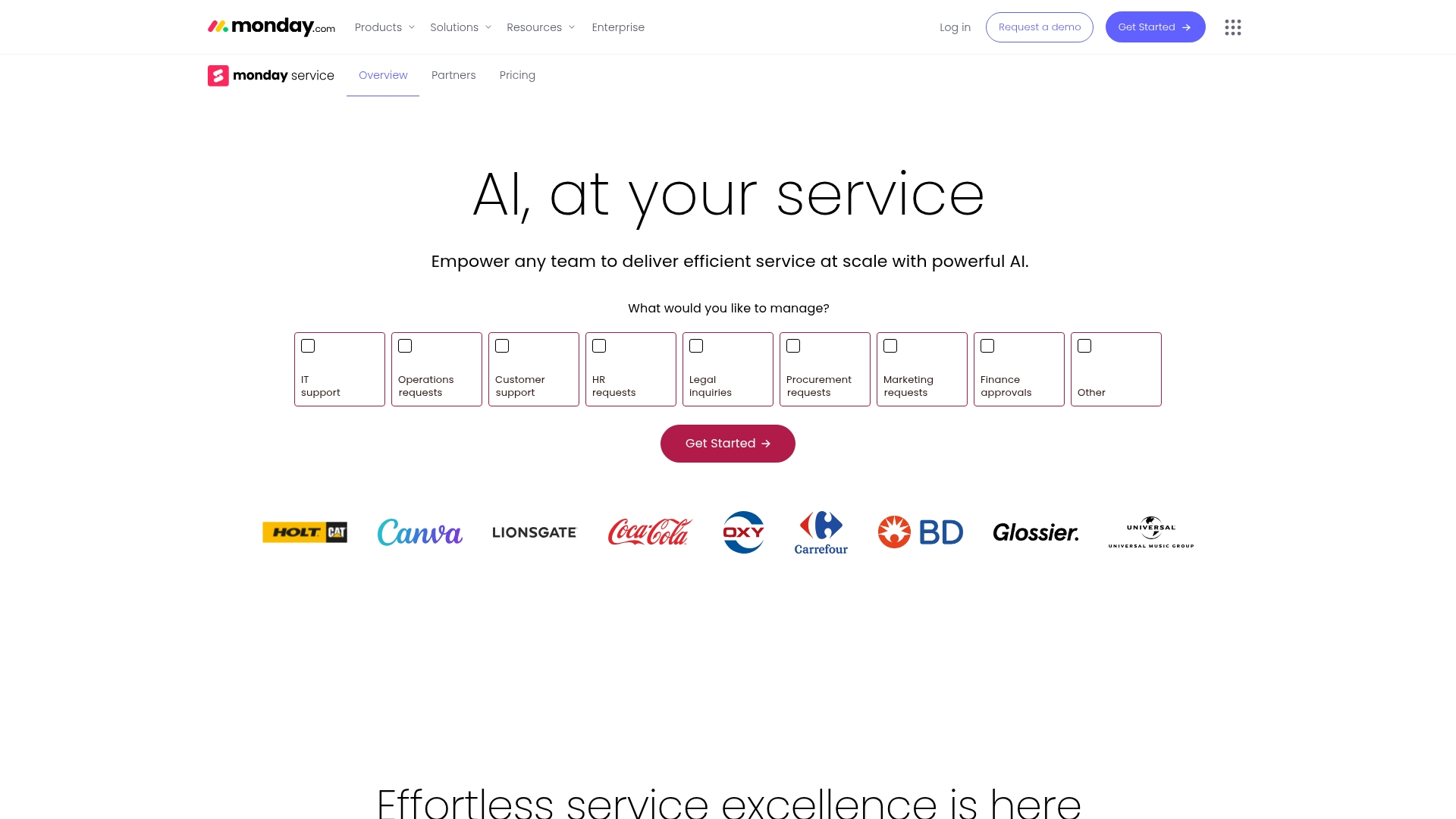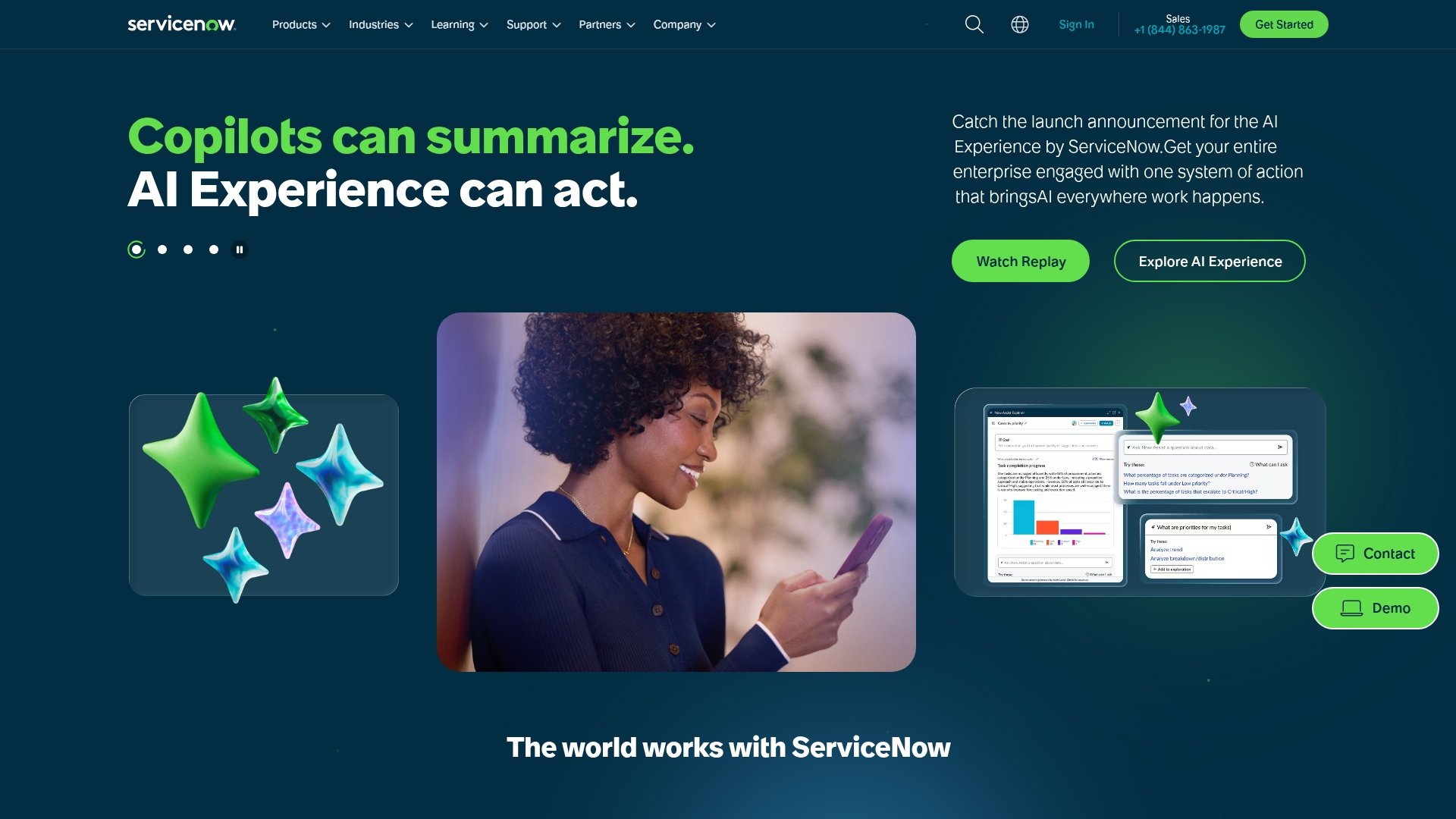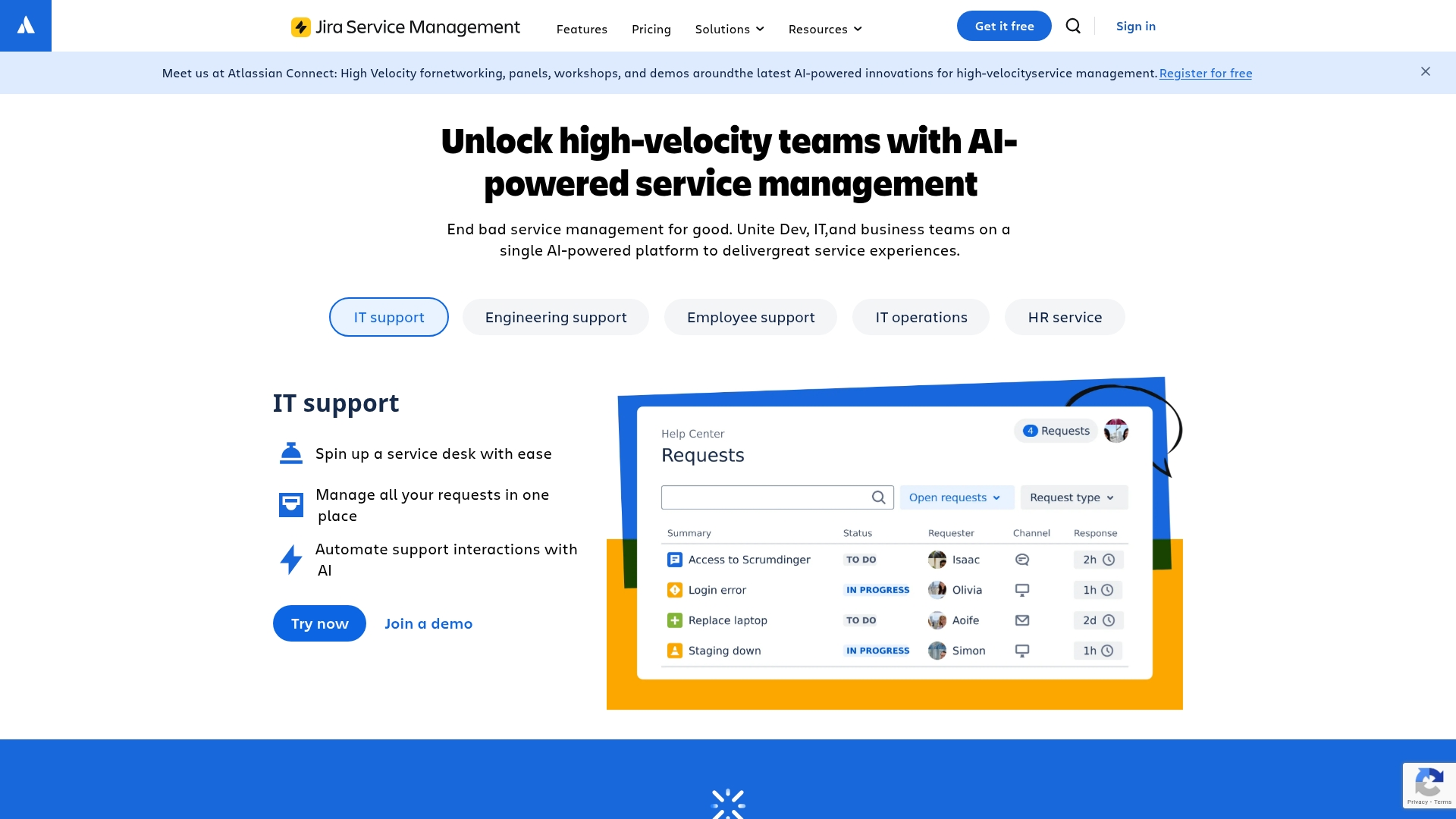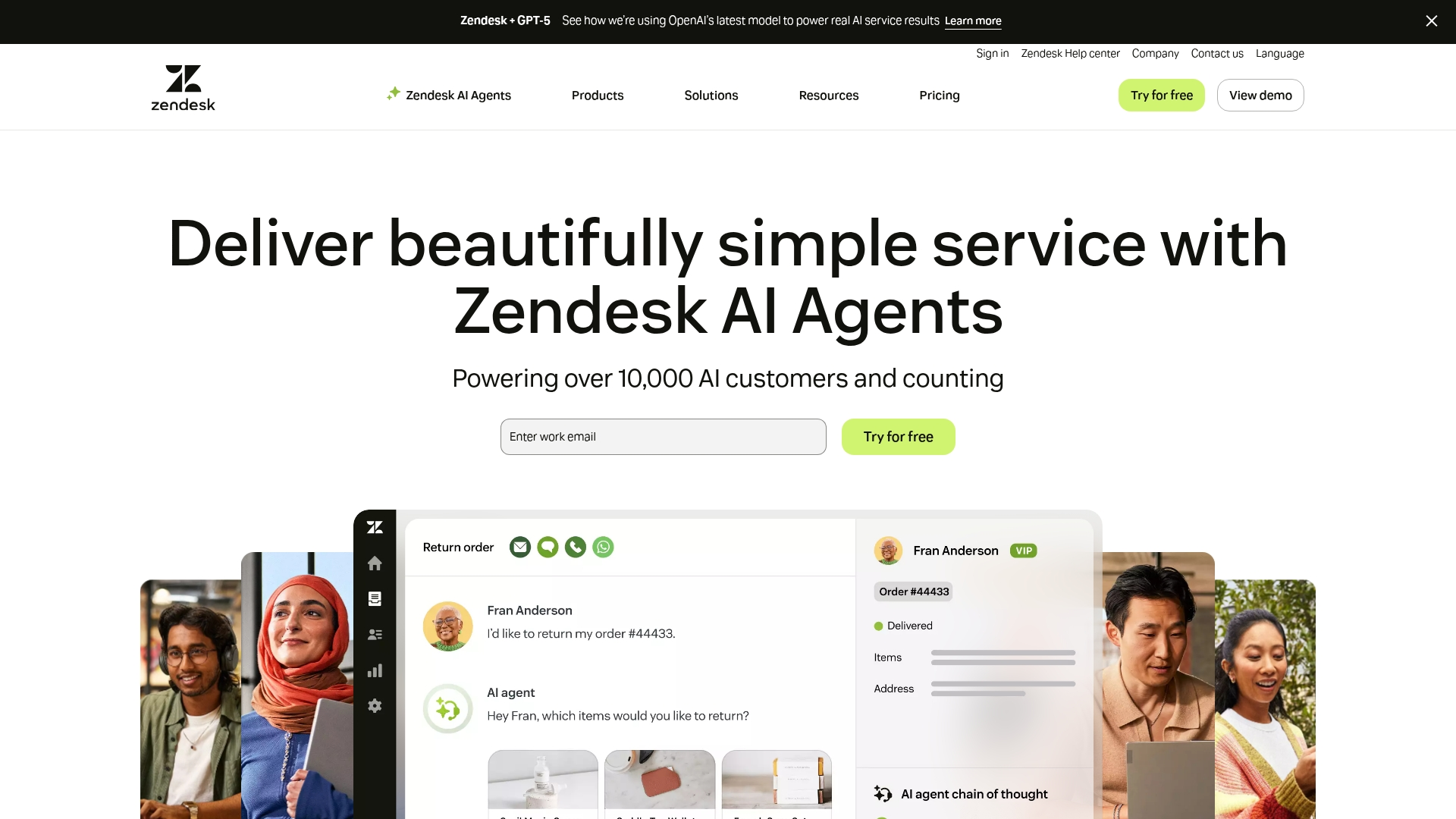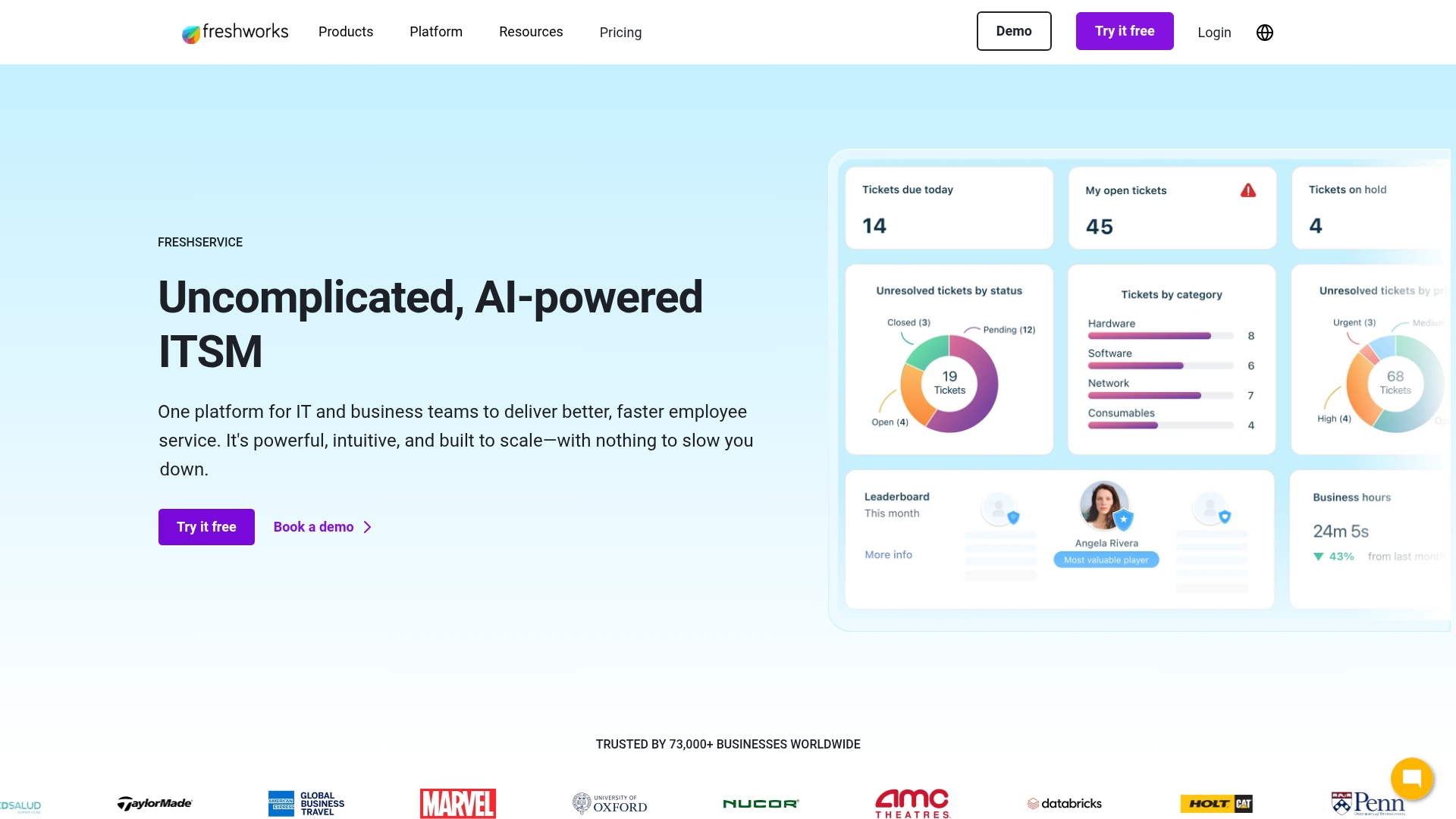Many service teams feel stuck in a reactive loop, constantly putting out fires instead of preventing them. This approach creates operational drag and keeps your team from contributing to larger business goals. The key is to shift from a simple help desk to a strategic digital workspace, and the right ITIL service desk software provides the framework to make that happen. Modern platforms make this proven methodology intuitive and accessible for any team.
This guide walks through everything you need to know to make that transition. It explores the essential features of a great service desk, compares the top platforms, and shares best practices for a smooth implementation. The goal is to provide you with a clear playbook for transforming your service delivery into a driver of business growth.
Try monday serviceKey takeaways
- ITIL turns reactive support into proactive service operations on a single digital workspace.
- The right platform should be easy to adopt, automate routine work, and integrate with your stack.
- monday service adapts ITIL practices with no-code workflows, AI routing, and clear SLA tracking.
- Compare tools on usability, time-to-value, and governance, then pilot with real tickets.
What is ITIL service desk software?
An ITIL service desk provides a standardized framework for managing the full lifecycle of IT services, from incident handling to driving continuous improvement. It helps teams transition from reactive troubleshooting to predictable, repeatable processes that enhance service quality and reliability.
ITIL brings structure and consistency to how organizations deliver support. It defines clear roles, responsibilities, and workflows, ensuring that every request follows the same proven path from submission to resolution. This consistency reduces errors, clarifies ownership, and builds accountability across the team.
The outcome is a service organization that operates with greater control and transparency. Teams gain the tools and insight to identify recurring issues, reduce downtime, and maintain reliable performance as demand and complexity grow.
Essential features of ITIL service desk solutions
Modern ITIL service desk platforms combine process standardization with automation and analytics to simplify service delivery. They help teams handle every stage of the service lifecycle efficiently, from intake to resolution.
Key features to prioritize include:
- Incident and problem management: Centralized ticketing with automated escalation paths that assign ownership and prevent repeat issues.
- Change and release management: Structured approval workflows with audit trails to manage risk and maintain compliance.
- Knowledge management: A shared repository that turns resolved tickets into searchable, reusable insights for agents and end users.
- SLA tracking and reporting: Clear performance metrics that highlight service trends and help teams stay accountable to targets.
AI now plays a larger role in service management, accelerating work at scale. It can:
- Automatically route tickets based on priority, topic, or availability.
- Recommend responses from the knowledge base to reduce handling time.
- Automate status updates and notifications so teams focus on higher-value work.
Together, these features create a more connected, efficient service experience that minimizes delays and supports continuous improvement.
Benefits of ITIL service desk implementation
Implementing an ITIL framework enables service operations to transition from reactive firefighting to proactive problem-solving. Defined processes help teams deliver faster, more consistent results while maintaining quality and adhering to compliance standards.
Automation reduces manual effort and accelerates response times. Dashboards visualize SLA performance, recurring issues, and operational trends, enabling leaders to make data-driven decisions that enhance reliability and prevent future incidents.
A mature ITIL framework also strengthens collaboration across departments. Shared workflows and a single source of truth reduce duplication, improve communication, and increase overall service satisfaction. As organizations grow, these processes scale easily, supporting more users, more requests, and increased complexity without losing control or visibility.
Top ITIL service desk software platforms
Selecting the right ITIL service desk is about finding a platform that aligns with your team’s workflow and operational rhythm. The objective extends beyond mere compliance; it’s about embedding proven frameworks into your daily operations so intuitively that problem-solving becomes faster and more collaborative. The ideal system empowers every agent to deliver exceptional service without being hindered by a tool that requires extensive training to operate.
While many platforms offer robust automation or deep customization, true value is found in a platform that enhances your team’s capabilities without introducing unnecessary complexity. The best solutions skillfully combine powerful features with a user-friendly design, enabling rapid adoption and immediate productivity. This focus allows teams to direct their energy toward what matters most: accelerating resolutions and optimizing service operations.
This is precisely where monday service excels, blending ITIL best practices with a refreshingly simple, no-code platform. With built-in AI managing ticket routing and real-time analytics pinpointing areas for improvement, it transforms complex service delivery into a streamlined and collaborative process. It delivers all the necessary power without the associated administrative overhead.
monday service
monday service helps organizations translate ITIL principles into simple, visual workflows that scale with their needs. The platform connects IT, HR, facilities, and other service teams in one unified workspace, making it easier to manage requests, track SLAs, and improve performance across the business.
Best for: Organizations that want enterprise-grade ITSM capabilities with fast adoption and flexibility across departments.
Key features:
- AI-powered intake, classification, and routing: Send every ticket to the right team automatically.
- Visual workflows for incident, problem, and change: Track every stage from request to resolution in one place.
- Built-in knowledge base with AI suggestions: Surface answers that help agents and employees resolve issues faster.
- Cross-department collaboration: Manage service requests from IT, HR, and operations in a single workspace.
- No-code automations: Create escalation paths, reminders, and handoffs without developer support.
- Integrations with Slack, Teams, Jira, and open APIs: Keep communication and context consistent across tools.
Pricing:
monday service offers flexible pricing plans for teams of all sizes, starting at $26 per seat/month. Every plan includes a free trial and scales easily according to user needs and feature requirements. Pricing is designed for accessibility and fast adoption across both small teams and enterprise organizations.
Why it stands out:
monday service combines ITIL best practices with an approachable interface that encourages adoption. Teams can launch core workflows in days, link tickets directly to projects and roadmaps, and make continuous improvements without complex setup or training.
Advanced AI features
- Smart ticket categorization automatically classifies incidents by urgency, type, and sentiment to prioritize resolution efforts
- AI-powered response suggestions pull from your knowledge base to help agents resolve common issues faster
- Intelligent routing assigns tickets to the most qualified team members based on expertise and workload
Automations
- No-code automation builder lets teams create custom workflows for incident escalation, SLA monitoring, and approval processes
- Pre-built automation recipes handle routine tasks like status updates, notifications, and follow-ups without manual intervention
- Enterprise-scale automation capabilities support complex multi-step processes across departments and stakeholders
Integrations
- Native connections to popular tools like Slack, Microsoft Teams, Jira, and various CRM systems streamline communication
- Robust API access enables custom integrations with existing enterprise systems and databases
- Bi-directional sync capabilities ensure data consistency across your entire tech stack
ServiceNow
For large organizations aiming to standardize complex IT operations at scale, ServiceNow provides an enterprise-grade ITIL service desk solution. The platform is a leader in comprehensive workflow automation and AI-powered service management, establishing it as the preferred choice for Fortune 500 companies.
Best for: Global enterprises standardizing complex IT operations
Key features:
- AI-powered automation to summarize incidents, generate email responses, and provide intelligent recommendations for faster resolution
- Comprehensive CMDB integration for visibility into IT assets and relationships to support proactive problem management and informed decisions
- Enterprise workflow orchestration with low-code allows teams to automate complex approval processes and cross-departmental handoffs without heavy development resources
Pricing:
ServiceNow pricing is custom based on organization size and modules, with enterprise packages that include workflow automation, CMDB capabilities, and AI-powered insights. Prospective customers can request a tailored quote through the ServiceNow sales team.
Considerations:
- High implementation complexity: Initial setup and customization often require significant professional services and can take months to deploy fully
- Steep learning curve: Both administrators and end-users frequently report challenges mastering the platform’s extensive feature set and customization options
Jira Service Management
By seamlessly connecting development workflows with IT operations, Jira Service Management excels at bridging the gap between technical teams. This specialization makes it the definitive choice for organizations already invested in the Atlassian ecosystem, transforming how development-centric teams handle service delivery.
Best for: Dev-centric teams working in the Atlassian ecosystem
Key features:
- DevOps integration connects service requests with development workflows, allowing easy escalation between IT support and development teams for faster issue resolution
- Multi-channel support consolidates requests from Slack, Microsoft Teams, email, and customer portals into unified request queues with conversational ticketing capabilities
- ITIL 4 compliance provides PinkVERIFY-certified processes for incident management, problem management, change enablement, and service request management out of the box
Pricing:
Jira Service Management pricing starts at $7.53 per user per month for standard ITSM features and up to 100,000 users per site. Premium and Enterprise tiers add unlimited storage, uptime SLAs, and advanced automation. A free plan is available for small teams.
Considerations:
- Steep learning curve for non-technical users, with the platform’s extensive features potentially overwhelming teams that only need basic help desk functionality
- Limited customer portal customization options and many advanced features, like AI capabilities, are locked behind higher-priced Premium and Enterprise plans
Zendesk
Zendesk offers a flexible ITIL service desk solution that prioritizes an intuitive user experience over rigid process adherence. Its specialization in omnichannel support and clean design makes it an excellent fit for organizations seeking an agile approach to IT service management. Instead of enforcing strict ITIL compliance, Zendesk adapts to a team’s specific needs and maturity level.
Best for: Support teams prioritizing omnichannel experience
Key features:
- Unified omnichannel workspace that consolidates email, chat, phone, and social media interactions into a single agent interface
- AI-powered automation with intelligent ticket routing, pattern recognition, and generative AI for content creation and response optimization
- Comprehensive knowledge management system with searchable FAQs, troubleshooting guides, and self-service portals enhanced by AI
Pricing:
Zendesk pricing starts at $19 per agent per month for basic support features, with higher tiers including AI-powered automation, omnichannel routing, and analytics. A free trial is available across all plans.
Considerations:
- Requires significant configuration time and effort to achieve strict ITIL compliance, as it’s not a dedicated out-of-the-box ITIL solution
- Lacks a native Configuration Management Database (CMDB) and some advanced ITSM capabilities found in specialized platforms, potentially requiring third-party integrations
Freshservice
Freshservice provides an ITIL-aligned service desk designed for rapid deployment and ease of use, making it a strong choice for mid-market organizations. The platform excels at translating complex IT processes into intuitive, user-friendly workflows, bridging the gap between powerful functionality and accessible design. Its PinkVERIFY™ certification across multiple ITIL processes ensures a solid foundation for ITSM best practices.
Best for: Mid-market teams adopting ITIL quickly
Key features:
- Complete ITIL process coverage, including incident, problem, change, and release management, with out-of-the-box workflows
- AI-powered automation through “Freddy AI” that handles ticket routing, classification, and resolution suggestions
- Integrated asset management and CMDB capabilities that provide full visibility into IT infrastructure and dependencies
Pricing:
Freshservice pricing starts at $19 per agent per month for essential ITSM workflows. Growth and Pro plans add advanced automation, analytics, and asset management, while the Enterprise tier includes full ITIL coverage. A 14-day free trial is available without a credit card.
Considerations:
- Advanced reporting and analytics capabilities are limited compared to enterprise-focused competitors, which may restrict deeper performance insights
- Mobile app functionality doesn’t match the full desktop experience, potentially limiting field agent productivity
Selecting the right ITIL service desk solution
Choosing the right service desk requires looking beyond feature checklists to find a tool that feels like a natural extension of your team. The best solution is one that is intuitive from day one, encourages widespread adoption, and scales in lockstep with your ambitions. The goal is to find a platform that simplifies your operational world, not one that adds another layer of complexity.
Evaluate your current operational maturity and future goals. A great platform meets you where you are, seamlessly integrating with the tools you already depend on — from your CMDB to your HR systems. This creates a unified command center that provides agents with a complete, contextual picture, eliminating the chaos of switching between tabs and ultimately accelerating resolution.
Consider the total value of ownership beyond the initial price tag. The right solution empowers your team to build and adapt workflows independently, saving significant hidden costs in customization and long-term maintenance. A platform that fuels operational efficiency and delivers a clear return on investment is one that will transform your service delivery into a high-performing, scalable operation.
ITIL service desk best practices
Approaching ITIL as a flexible playbook rather than a rigid rulebook is key to success. A practical starting point is to tackle incident management first, as it offers the quickest and most visible wins for both your team and your customers. With a platform like monday service, you can build and launch these foundational workflows in days, creating immediate positive momentum.
Lasting success is achieved when your team directly experiences the benefits of streamlined processes in their daily work. As they improve performance, real-time analytics can connect their efforts — such as faster resolution times — to broader business goals, like higher customer satisfaction. This establishes a powerful feedback loop where everyone sees their impact, building confidence and proving the value of your service operations across the organization.
With a solid foundation in place, you can start automating routine operations. The built-in automation and AI capabilities of modern platforms are designed to handle repetitive tasks, freeing your team to focus on complex problem-solving and strategic initiatives. From intelligent ticket routing to AI-powered response suggestions, these features accelerate resolutions and enable continuous optimization, ensuring your service delivery scales effortlessly with your growth.
Transform your service delivery with monday service
Delivering standout service is a universal goal, yet clunky tools and departmental silos often impede progress. The conventional trade-off between a powerful platform and one that people enjoy using is no longer necessary. You can have both.
monday service unites teams on a single, flexible, and highly intuitive workspace that drives adoption from the very first day. It effectively breaks down frustrating silos by seamlessly connecting IT and business teams, transforming service requests into collaborative projects without forcing users to switch contexts.
Built-in AI manages routine ticket sorting and routing, freeing your agents to focus on challenges that require a human touch. Because its no-code automations adapt to your specific needs, you can build and adjust workflows in minutes, creating a system that scales perfectly alongside your success.
Try monday serviceFAQs
How is ITIL different from ITSM?
ITSM defines the overall approach for delivering IT services to the business. ITIL provides a structured framework of best practices to carry out that strategy. In other words, ITSM is what you manage, and ITIL helps guide how you manage it.
How long does ITIL service desk implementation take?
Implementation timelines vary by scope. Teams introducing ITIL workflows for the first time often go live within a few months. Large organizations adopting full ITIL practices across multiple departments may need 6 months to a year, depending on data migration and change management.
Is ITIL service desk software suitable for small or growing teams?
Yes. Many platforms now offer scalable pricing and modular features, enabling smaller teams to begin with incident management and expand as their processes mature. This flexibility makes ITIL achievable even with limited enterprise-level resources.
What certifications indicate quality ITIL software?
Look for ITIL 4 alignment from accredited partners such as AXELOS. ISO 20000 certification and PinkVERIFY accreditation are also strong indicators that a platform meets global service management standards.
What should you consider before migrating to an ITIL platform?
Audit your current workflows and data sources first. Identify which processes already align with ITIL and where automation or visibility is missing. Involve end users early so the new platform supports how teams actually work, not just how processes look on paper.
What measurable impact can ITIL software have?
Organizations often report faster resolution times, higher customer satisfaction, and fewer escalations after adopting ITIL-aligned processes. The biggest gains come from improved visibility, automation, and knowledge sharing, which are factors that drive lasting operational efficiency.

